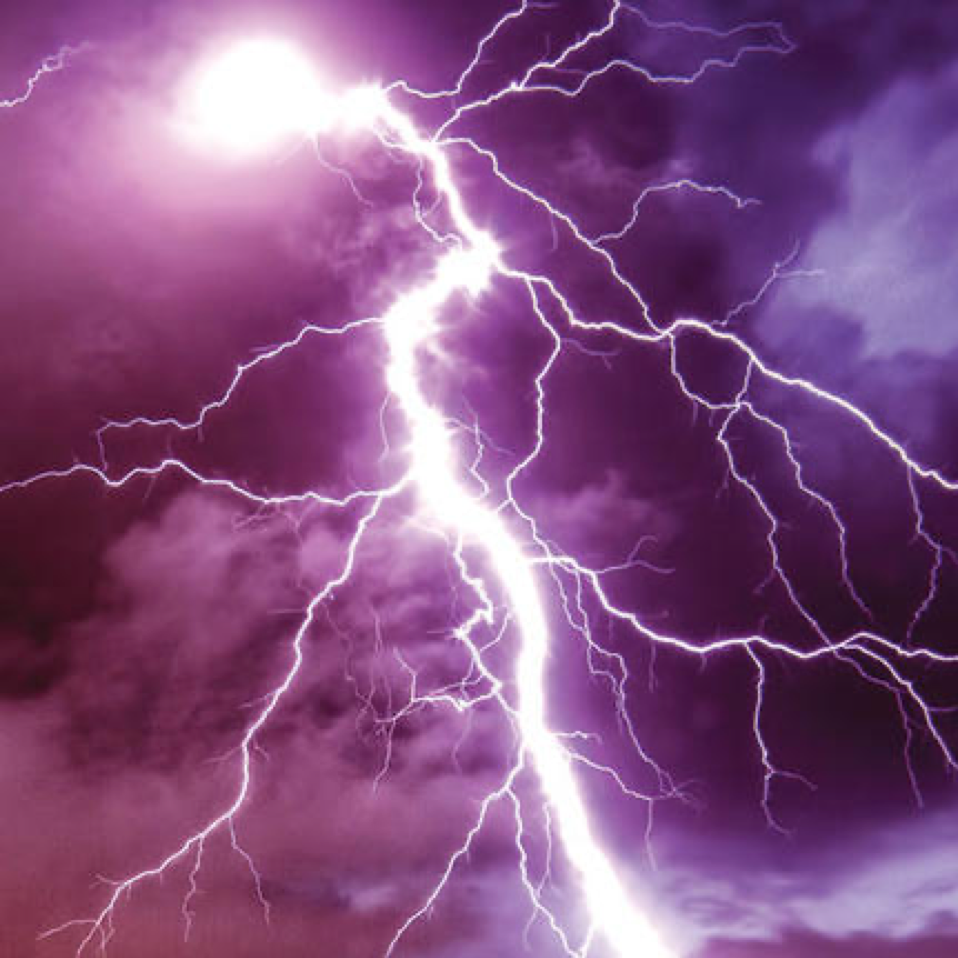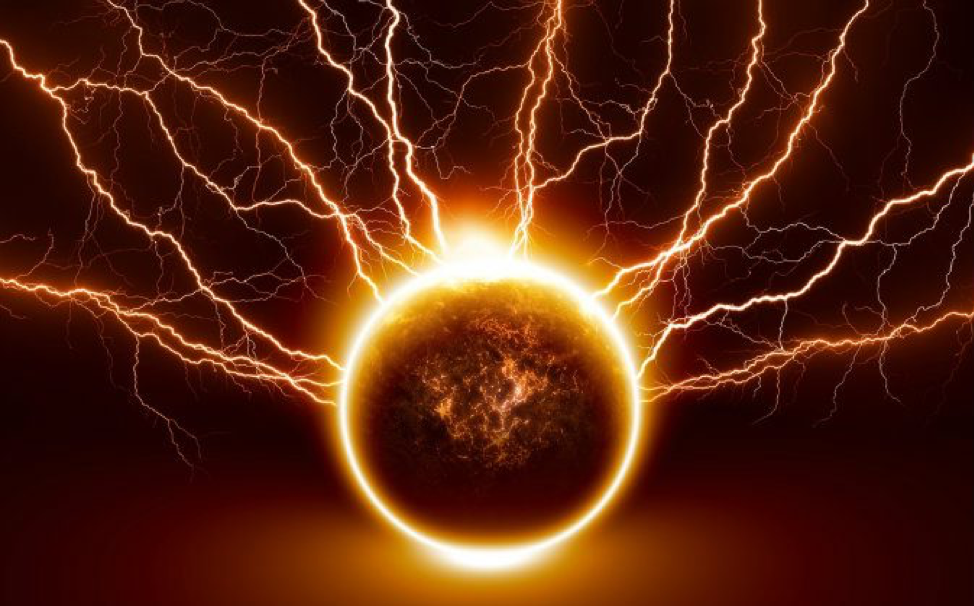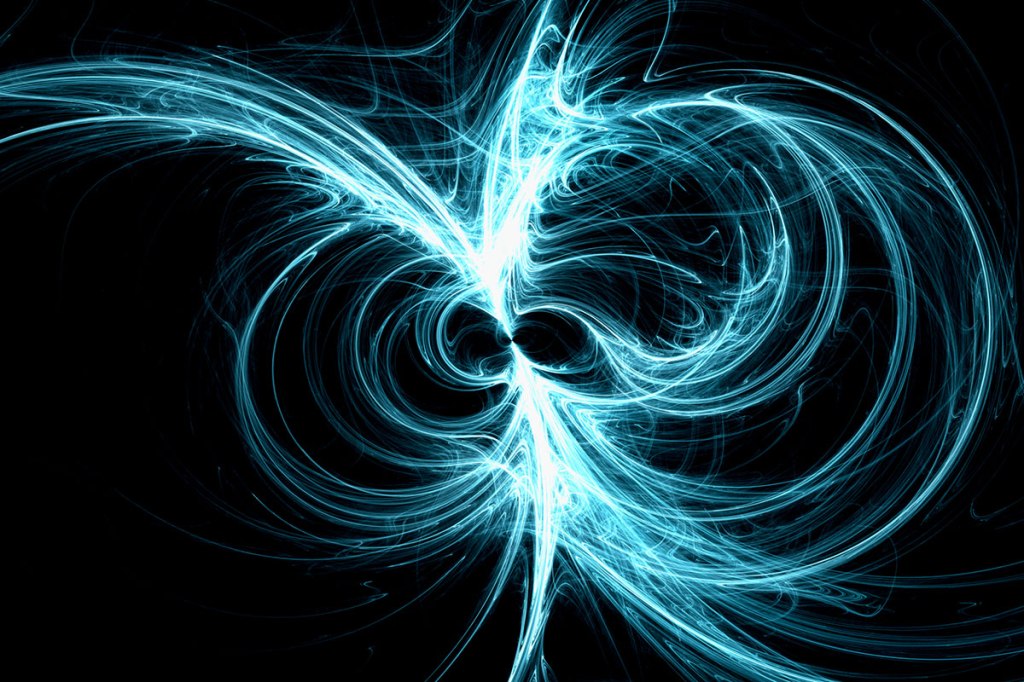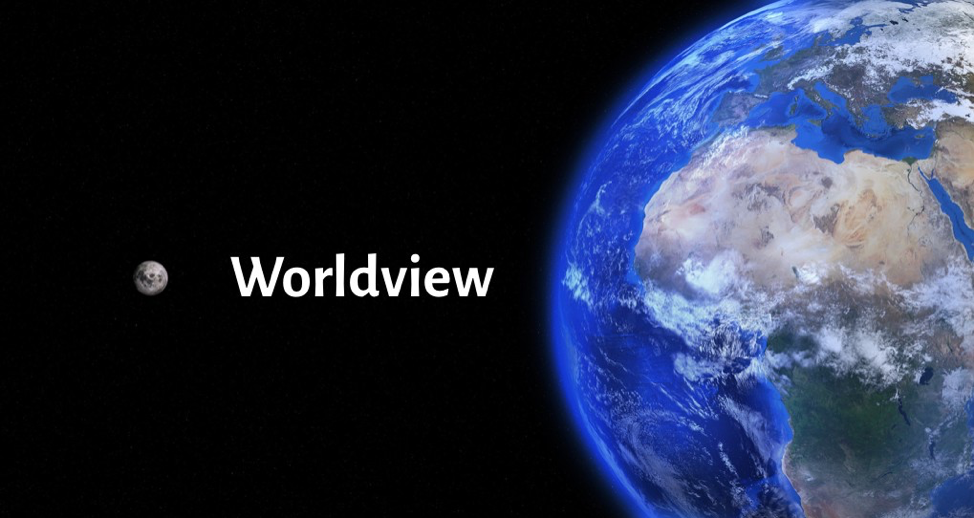
PART I.
Drawing on Thomas Kuhn’s paradigm shift framework, I’ve established that cosmology is presently in crisis and inevitably heading towards a revolution (or paradigm shift). When a scientific model reaches a crisis point—marked by mounting anomalies and contradictions that the model cannot resolve—then it can no longer serve as a reliable guide to problem-solving and will eventually be replaced by a different model.
This is the Model Revolution Stage of the Paradigm Shift Cycle. It begins with the emergence of a new model or models that speak a fundamentally different language, making the old and new models irreconcilable and incompatible: which means that they cannot coexist. Simply put, the main criteria for model revolution, is a new model, that speaks a fundamentally different language and is incompatible with the existing model.
To distinguish it from other uses of the word, for the purpose of this analysis, I use the word language to refer to “paradigmatic language,” by which I mean how a paradigm talks about and describes the things it observes in nature. A change in paradigm is ultimately a change of worldview (The Structure of Scientific Revolutions). So, are there presently any cosmological models that speak a fundamentally different paradigmatic language, with a different worldview?
In order to explore this question, we must first establish the lexicon of the Standard Model of Cosmology. To put a complex subject in admittedly reduced terms, I have distilled the Standard Model lexicon to the three following foundational concepts and assumptions (in order of significance):
- Gravity—as the principal cosmological force
- General Relativity—as defining and/or in relation to gravity
- The Big Bang—an expanding universe birthed by the big bang
These concepts are complementary and interdependent, while also engendering the majority of other concepts and hypotheses contained within the Standard Model, which exist to explain (often contradictory or anomalous) observational data related to one or more of these foundational assumptions. In other words, the paradigmatic language or lexicon of the Standard Model is premised on, and couched within, one or more of these foundational notions.
PART II.

A Fundamentally Different Cosmology?
So, are there presently any alternative models that deviate from one or all of these foundational concepts and assumptions? Let’s look at what mainstream science has to say about alternative cosmologies. In the mainstream, alternatives are sometimes described as physics beyond the Standard Model (BSM). “Physics beyond the Standard Model (BSM) refers to the theoretical developments needed to explain the deficiencies of the Standard Model…”[i] According to mainstream scientists, “theories that lie beyond the Standard Model include various extensions of the standard model…and entirely novel explanations, such as string theory, M-theory, and extra dimensions….”[ii]
Examples of extensions include Eternal Inflation theory and the Oscillating model of the universe.[iii] I leave it to cosmologists and astrophysicists to explore the details of these hypotheses. For our purposes, what matters is that both of these theories rely on the Standard Model’s foundational assumption, and lexicon, about a big bang, and are, therefore, not sufficiently different. Even early big bang rivals such as Steady State Theory still rely on foundational assumptions and concepts–such as gravity as the sole driving-force of the universe as well as expansion.
Another mainstream alternative is Modified Newtonian dynamics or MOND. MOND “is a hypothesis that proposes a modification of Newton’s law of universal gravitation to account for observed properties of galaxies.” Specifically, It is “an alternative to the hypothesis of dark matter in terms of explaining why galaxies do not appear to obey the currently understood laws of physics.”[iv] In other words, MOND (and its variants) are an attempt to address one of the many anomalies—and crises—of the Standard Model.
While it is touted as an alternative that can eliminate the problems and anomalies created by the hypothesis of dark matter, MOND is still gravity-centric (and actually increases the galactic effects of gravity).[v] It also relies on many of the main assumptions and concepts of the Standard Model (with the obvious exception of dark matter). Thus, as is the case with the previously mentioned extensions, MOND is also not a viable alternative in the Kuhnian sense.
Overall, an extension to the Standard Model, by its very definition, could never be seen as containing a fundamentally different paradigmatic language. What’s more, while these extensions arose to address problems and deficiencies in the Standard Model, by further contributing to the complexity of the Model, they ultimately exacerbate the crisis in contemporary cosmology. Let us recall that, as noted in previous articles, increasing complexity is an indication of crisis.
Moving on to the “entirely novel explanations” such as String Theory, M-theory and extra dimensions, the main thing worth nothing for our purposes is that these still treat gravity as the main driving-force in the universe. As such, they too cannot be seen as speaking a fundamentally different paradigmatic language, and do not qualify as serious theoretical considerations for a new model.
These are but a few examples of mainstream alternatives that exist. I leave it those more versed in the hard sciences to sift through and evaluate all of the possible add-ons and extensions to the Standard Model. As a critical discourse analyst working within the Kuhnian framework, I am primarily interested in identifying alternative models that meet the criteria for Model Revolution; ones that self-consciously and directly espouse a fundamentally different language, with a different view of the cosmos

The Electric Universe Model
One model that I am familiar with, and that also stands out for speaking a radically different language, is the Electric Universe Model of Cosmology (or EU Model for short). Proponents of this model self-consciously espouse an entirely different paradigmatic language. Let’s look at some examples in the words of its proponents.
In an introduction to an essay in The Secular Heretic by EU physicist and pioneer, Wal Thornhill, the magazine’s editors describe the EU Model as the science of the 21st century, telling its readers: “Set aside everything you think you know about all things great and small because the ideas presented” in the Electric Universe “overturn it all.”[vi] Referring to the EU Model’s take on the primary assumptions of the Standard Model, they note:
“Was there a big bang? Not likely. Einstein’s Relativity? Doesn’t hold up. Is the Sun a thermonuclear fusion reactor which will eventually run out of fuel and burn out? Nope. Are there black holes? No such thing. What about dark matter and dark energy? Forget about that nonsense and start learning about the science of the 21st century.”[vii]
Implied in this statement is the idea that the Electric Universe Model calls into question many of the foundational concepts and suppositions of Standard Cosmology.
What about gravity? This is arguably the most important point of departure.
For the EU Model, the universe’s nature cannot be explained by gravity alone. Moreover, according to Wal Thornhill, “unlike the Standard Model, the EU Model has a physical model for gravity as a manifestation of the electric dipole force.” In the Standard Model, gravity is the fundamental organizing force in the Universe. On the macro scale, the Universe is dominated by gravity. But in the Electric Universe Model, “The Electric Force is the fundamental organising force at all scales.”[viii]
According to EU proponents:
“…the gravitational theorem…does not single-handedly provide all the answers required by physical science, particularly in deep space….gravitational theory struggles to explain many anomalies in observation….Today’s most vexing scientific anomalies point to an unexpected—at times dominating—role of the electric force.”[ix]
The EU Model does not deny the role of gravity in the universe. On the contrary, as its proponents explain:
“The Electric Universe concept emerged from the principles of empirical physical science as expressed by such pioneers as Galileo, Kepler and Newton…However, there is an important corollary to the gravitational theorem…”[xi] and that is the Electrical Force. [xii]

Due to the hierarchical structure of the gravity-relativity-big bang lexicon that I identify at the beginning, if the first foundational concept—i.e., gravity as the organizing force in the universe—is compromised, then it stands to reason that the other two would also be called into question. If the Standard Model’s views on gravity as organizing force are wrong, then general relativity would be rendered irrelevant, and the big bang improbable. For instance, based on what the EU Model has to say about gravity, the question of a big bang becomes moot. According to Thornhill, “there was no big bang” and “we do not know the origins of the universe.”
What about theories such as dark matter, dark energy, black holes, gravitational waves., etc.? While they are presented as declarative truths or foregone conclusions by mainstream science, EU advocates would caution that these concepts are physically undefined and remain ad hoc hypotheses.
Paradigmatic Traps
However, it is not likely that the Standard Model will easily let go of these, and other, foundational concepts. This is partly due to the fact that paradigmatic lexicons/foundational assumptions can trap scientists in a discursive prison that limits the way they can talk about—or even think about—what is observed. In a parading shift, the new paradigm typically understands the language of the old or existing model (but does not agree with it). The old paradigm, however, is restricted in its ability to understand—or even consider—the language of the new model.
For example, because the Standard Model does not allow for cohesive electrical effects in space, they are limited to describing much of the interstellar medium as gas, whereas the EU Model describes it as plasma (not least because over 99 percent of the known universe is made up of electrically-charged plasma).[x] Standard Model scientists know what plasma is, but given their paradigmatic assumptions, they default to the language, and, therefore, the physical properties, of gas.
For more on the differences between the Electric Universe Model and the Standard Model refer to The Electric Universe Heresy by Wallace Thornhill, and this recent video by Mel Acheson.
In exploring some of the most important differences between the two models, I do not claim to assert whether or not the EU Model is poised to replace the Standard Model. As Acheson and others have noted, the EU Model is still evolving and remains a work-in-progress. However, looking at the paradigm shift framework, one could not ask for a better example of a model that meets all of the requirements for the Model Revolution Stage, embodying what it means for a model to speak a fundamentally different language than—and be incompatible with—the dominant or existing model.
Moreover, as I have shown in previous work, the Electric Universe Model is also arguably less complex than the existing Standard Model, thereby satisfying part of Kuhn’s requirements for paradigm change. In this respect, the EU Model cannot be considered as an add-on or extension to the Standard Model. It is by the aforementioned measures, a fundamentally different cosmological paradigm.

A Note on Worldview
Implied by the major differences between the Standard Model and the EU Model is a difference in worldview. As Wal Thornhill explains, Electric Universe proponents believe in a “resonantly connected universe,” which is “self-organising,” and where “entropy can decrease.” In the Electric Universe worldview, “the whole is greater than the sum of the parts”. The universe is “consciousness-filled…” with “instantaneous information transfer via resonant connection.”[xiv] Overall, the EU worldview highlights and emphasizes cosmic connectivity.
While the Standard Model does not have a formally articulated and expressed worldview, the Electric Universe infers from what the Standard Model says and, more importantly, what it is silent on, a worldview of “disconnected, random, chaotic, unconscious, purposeless, ever-increasing entropy.”[xv] A worldview that is very much in contrast to its own.
Given these differences, Standard Model proponents and Electric Universe proponents are ultimately living in two different—and incompatible—worlds.
As stated earlier, a paradigm shift or scientific revolution is ultimately a change of worldview for scientists. As noted in The Structure of Scientific Revolutions:
“Though the world does not change with a change of paradigm, the scientist afterword works in a different world….Rather than being an interpreter, the scientist who embraces a new paradigm is like the man wearing inverting lenses. Confronting the same constellation of objects as before, and knowing that he does so, he nevertheless finds them transformed…through and through…” (pp.121-122).
From this statement, we can conclude that a change of paradigm will ultimately upset the scientist’s worldview and field of study–turning them on their head. In light of this, let’s look at how proponents of the Standard Model have reacted to the Electric Universe.
Part III.

Mainstream Response to the EU Model
For a long time mainstream science and media responded as Kuhn’s work would suggest. Once Science becomes Institutionalized and entrenched, it tends to function like other dominant Institutions—such as Religion and Politics—in that it is dogmatic and unyielding to falsification and change or newness. For years, mainstream scientists have ignored, dismissed and/or mocked the Electric Universe Model. Some even going as far as to lump it in with absurd hypotheses held by “crackpots and a few fringe contrarians.” There are also claims that EU Model’s predictions are “in absurd conflict with observations of the big bang.”[xvii]
This is ironic given the Electric Universe’s claim of a history of accurate predictions.
Examples include:
- That solar radiant energy is due largely to transmutation of elements in the electrically active solar plasma, which was confirmed by an independent SAFIRE experiment in 2019.
- The electrical “flash” discharge preceding the impact of a copper projectile on Comet Tempel One
- That the surface of Saturn’s moon Titan has distinctive lightning scars—called Lichtenberg patterns—with virtually no large craters.
- Successful predictions about what would be found at the heliopause
- Successful predictions about the heat from Saturn’s north pole
These predictions, notwithstanding, it is not surprising that the Standard Model would dismiss the EU, especially given what Kuhn says about incommensurability. In the course of a paradigm shift, new ideas and assertions cannot be strictly compared to—or judged by—those of the old model, since the two models will have no common measure. From the perspective of my field, Critical Discourse Analysis, judging the EU Model by the existing Model’s standards and/or categorizing it as a model that is not to be taken seriously, are prime examples of how language is linked to power.
In CDA, power is understood in broader symbolic terms, including the power to represent someone or something in a certain way.
For CDA “language….is not simply a tool of communication, but a means by which people demonstrate their commitment, in one way or another, to certain ideologies”[xix] or dogmas. From the perspective of Critical Discourse Analysis, language is always about power and control, and is never arbitrary (Birch, 1991; Hall, 1981–cited in “A critical discourse analysis of power and ideology,” 2011).
With respect to science, those working in a model that is as deeply entrenched and as heavily funded as the current Standard Model, ultimately have the power to define and control the very discourse around cosmology—including what is considered acceptable and not acceptable. Given the careers and funding at stake, and given the power it has to define and shape the discourse, it is not surprising that mainstream science and cosmology would dismiss or mock any truly alternative model that threatens or undermines it.
Once this becomes the official discourse on cosmology—i.e., that the Standard Model is acceptable and alternative models that deviate from it are unacceptable—it functions as a form of neuro-linguistic programming, that signals to the broader population how they should think about cosmology.
Ironically, however, it is the very resistance to new ideas that eventually forces Institutionalized Science to change. By resisting novelty, normal science (or dominant science) prepares the way for its own change, not least because crises left unresolved eventually force individuals—including scientists working within the existing model—to look elsewhere for new and better answers or explanations.
It must be stressed that this entails fully abandoning the existing, broken model. For Kuhn, new models demand the destruction of the old paradigm. In a scientific revolution, the new paradigm does not simply revise—or extend and add on to—the old paradigm, it replaces it.

While mainstream science has typically ignored and/or dismissed the Electric Universe Model, more recently, there has been what I describe as “electric universe adjacent” language in the mainstream.
Examples include the following titles:
From the titles alone, we can see that this language is different and uncharacteristic from what’s been typically reported by the mainstream in the past; and appears to be more closely aligned with the discourse of electromagnetism.
One title even mentions filaments. And While two of the titles deal exclusively with magnetism, according to the EU Model, it is meaningless to talk about magnetism without also considering the Electric Force.
What might this recent change in mainstream discourse foretell?
While it is too early to say for sure, one possibility is that more advanced technology (with more sophisticated probes) will make it increasingly impossible to deny the role of electricity in space. Something the EU Model has long claimed.
Wal Thornhill notes that “the Electric Universe paradigm has an unparalleled record of successful predictions in the space age.” He expects that this will continue; and that images and findings from the new James Webb Space Telescope will further support the predictions of the Electric Universe.
Given the recent additions to their lexicon, could proponents of the Standard Model be preparing or attempting to get ahead the curve, and make room in their discourse for electromagnetism, and cosmic electrical forces; while maintaining their authority.
In other words, could they be preparing to include electricity as an add-on or extension. Will we suddenly be reading about E-Gravity, for instance.
Kuhn’s paradigm shift framework, and everything discussed so far, clearly demonstrate that this is not sustainable in the long-run. Mixing incommensurate models—with fundamentally different paradigmatic languages—would only hurt science and could not be considered a true paradigm shift or scientific revolution.
Due to their fundamental differences, the Electric Universe Model and the Standard Model cannot co-exist in the same paradigm. They are too different. As Mel Acheson aptly maintains, trying to add the Electric Universe as an extension to the Standard Model would simply muddy the waters.
Given everything we know about the paradigm shift process (including our clearly articulated criteria for a Model Revolution stage), we must conclude that the future of cosmology cannot, and will not, be an ad hoc revision to the Standard Model. On the contrary, due to the very nature and definition of a scientific revolution, the only way forward is a truly alternative cosmological model, with a radically different paradigmatic language and worldview
Could this be the Electric Universe Model of Cosmology?
Time Will Tell…
Notes
[i] https://hep.info.yorku.ca/beyond-the-standard-model/
[ii] https://en-academic.com/dic.nsf/enwiki/11813627
[iii] https://www.space.com/24781-big-bang-theory-alternatives-infographic.html
[iv] https://en.wikipedia.org/wiki/Modified_Newtonian_dynamics
[v] See Ibid.
[vi] https://thesecularheretic.com/the-electric-universe-heresy/
[vii] Ibid.
[viii] As cited in a chart created and provided by Wallace Thornhill, February 2022.
[ix] https://www.thunderbolts.info/wp/2013/11/28/common-misconception-5-what-about-gravity/
[x] See https://www.youtube.com/watch?v=Uzw6s4nbTZA&feature=emb_logo
[xi] https://www.thunderbolts.info/wp/2013/11/28/common-misconception-5-what-about-gravity/
[xii] As cited in a chart created and provided by Wallace Thornhill, February 2022.
[xiii] Ibid.
[xiv] Ibid.
[xv] Ibid.
[xvi] See https://www.youtube.com/watch?v=3ap0nxgg9Ws
[xvii] See https://www.forbes.com/sites/startswithabang/2021/05/06/why-isnt-anyone-seriously-challenging-the-big-bang/?sh=2275dfa1689f
[xviii] https://www.grin.com/document/350636
[xix] Ibid.
[xx] https://www.thunderbolts.info/wp/2021/06/26/not-if-but-when-cosmology-in-crisis-the-coming-paradigm-shift-part-3/
[xxi] See https://www.youtube.com/watch?time_continue=95&v=9brYReflH3A&feature=emb_titl
Copyright © 2022 Ghada Chehade. All content in this article is the sole property of the author and can only be reproduced with the expressed permission of the author, Ghada Chehade.



 I was recently in New York City and observed many things that seemed to contradict the state of US social relations as depicted by the mainstream media. Watching US news media from Canada, one gets the impression that there is overwhelming racial tension in that country. As someone that is aware and critical of the divide and conquer schemes of the establishment, and as someone that does not buy into identity politics, I know that race is often used as a distraction, so I was not the least bit surprised to find Blacks and Whites and Latinos peacefully and jovially co-existing. I spent ten days in Bed Stuy Brooklyn, a gentrifying neighborhood made up of predominately Black and Latino communities with a growing influx of white residents. While gentrification creates a host of problems, not least of which is oppressive rent, with respect to “race relations” I did not witness any outward hostility or violence between the different races. And this was the same everywhere I went in Brooklyn or Manhattan as well as on planes, subways and in airports. Everywhere I looked, people of different races and ethnicities were getting along, and gasp, even helping one another out. While I am aware that there is racial tension in the US, it was not overwhelmingly apparent, at least not on the surface (and I say this as a brown person).
I was recently in New York City and observed many things that seemed to contradict the state of US social relations as depicted by the mainstream media. Watching US news media from Canada, one gets the impression that there is overwhelming racial tension in that country. As someone that is aware and critical of the divide and conquer schemes of the establishment, and as someone that does not buy into identity politics, I know that race is often used as a distraction, so I was not the least bit surprised to find Blacks and Whites and Latinos peacefully and jovially co-existing. I spent ten days in Bed Stuy Brooklyn, a gentrifying neighborhood made up of predominately Black and Latino communities with a growing influx of white residents. While gentrification creates a host of problems, not least of which is oppressive rent, with respect to “race relations” I did not witness any outward hostility or violence between the different races. And this was the same everywhere I went in Brooklyn or Manhattan as well as on planes, subways and in airports. Everywhere I looked, people of different races and ethnicities were getting along, and gasp, even helping one another out. While I am aware that there is racial tension in the US, it was not overwhelmingly apparent, at least not on the surface (and I say this as a brown person). What was undeniably palpable, however, is something the MSM never talks about: the massive economic disparity in cities like NYC. If there is a glaring and unavoidable tension, it is between the classes not the races. Yes, “class,” that five letter word that no one in the west is willing to address. Everywhere I went in NYC, class was painfully apparent. The gap between the haves and have-nots was wide and oppressive. On the subway I saw the anguish of working class and poor people, those who are struggling just to get by. The struggle was written all over their tired and forlorn faces. And in Soho, Wall Street and—of course—Park Avenue I saw immense wealth; much of it built on the backs of those folks I saw on the subway. People who say that class does not exist in America are either blind or lying or both. So why does the media not talk about class, economic despair and economic disparity? Why is there an endless focus on race, when the larger issue—the issue that affects the majority of people regardless of race and ethnicity—is class and increasing unemployment and underemployment.
What was undeniably palpable, however, is something the MSM never talks about: the massive economic disparity in cities like NYC. If there is a glaring and unavoidable tension, it is between the classes not the races. Yes, “class,” that five letter word that no one in the west is willing to address. Everywhere I went in NYC, class was painfully apparent. The gap between the haves and have-nots was wide and oppressive. On the subway I saw the anguish of working class and poor people, those who are struggling just to get by. The struggle was written all over their tired and forlorn faces. And in Soho, Wall Street and—of course—Park Avenue I saw immense wealth; much of it built on the backs of those folks I saw on the subway. People who say that class does not exist in America are either blind or lying or both. So why does the media not talk about class, economic despair and economic disparity? Why is there an endless focus on race, when the larger issue—the issue that affects the majority of people regardless of race and ethnicity—is class and increasing unemployment and underemployment.
